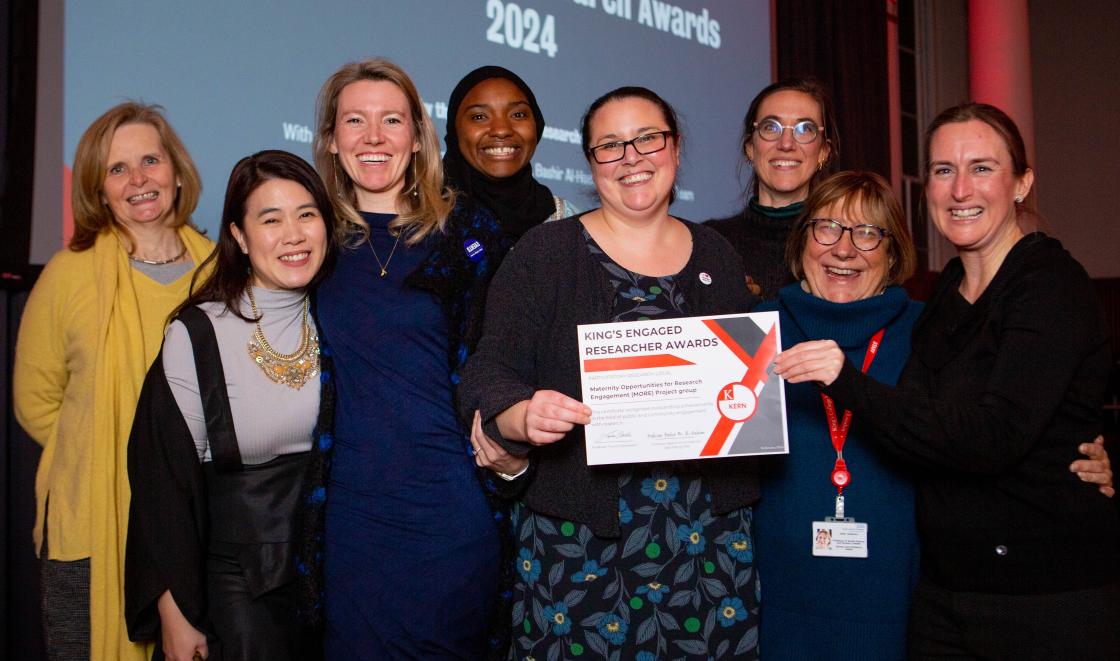A journey into peer research
Reflecting on her own journey into peer research, Dr Ocloo said that she began her career in community activism in Tower Hamlets working with African and Caribbean, Bangladeshi and Somali communities. “One of the things that really hit me was that these groups were some of the most disadvantaged in terms of their health needs and yet were not being heard, and included in research and healthcare improvement” said Dr Ocloo, and that this has implications for understanding and addressing health inequalities.
She then shared her personal story of the death of her 17-year-old daughter due to medical negligence and racial discrimination, which led her to become a patient safety campaigner and health services researcher. “Bringing in my lived experience is important for me as a Black woman, because people from racialised minorities are more likely to report being in poor health and have poor experience with health services. And yet despite this, Black, Asian and minoritised groups are less likely to be involved in healthcare improvement and practice and research both as public members and healthcare researchers,” said Dr Ocloo.
Panel discussion with peer researchers
The introduction was followed by a panel discussion, chaired by Dr Ocloo, with Amy Allard-Dunbar, a peer researcher specialising in patient and public involvement working with the NIHR Mental Health Implementation Network; Cassie Lovelock, a peer researcher in King’s College London’s Service User Research Enterprise and the ESRC Centre for Society and Mental Health; and Vita Moltedo, a peer researcher working with the ARC’s maternity and perinatal mental health theme (see bios below).
The panellists described how they got involved in peer research:
Amy: “I got involved during Covid. At the time, I was a youth worker supporting young Black people and people of colour in Scotland. I produced a short report highlighting the difficulties young people had in accessing education and their experiences of distance learning. From there, I produced more reports about their experiences, for example, with police during Covid. I then moved into sexual violence advocacy work. So, I’ve built up a lot of experience working with different communities, mainly the LGBT+ community, trans communities and survivors.”
Cassie: “I entered this space through academia, which is unusual. I was a carer for my sister for a long time. When I was a teenager, I took part in a study as a participant on the unmet needs of young carers. And from there, the researchers offered me a job on that study as a peer research assistant. I was then invited to do a PHD with the same researchers, which led to various roles in academia and beyond. At the moment, I have a position in NHS England, where I do a lot of peer research and peer policymaking. And in my current academic project, I'm looking into the intersections around poverty and mental health neurodivergence and the welfare system.”
Vita: “When I had my son, I went through trauma that was connected to my experience of birth, and even more so in the weeks and months that followed […] I became interested in talking to other people about it. […] It can be much more than your own individual experience. It can be a more communal experience. After some time, I got involved in a project as a peer researcher without realising that that's what I was going to be […] I was part of a group of people with experiences of maternity services invited to speak to people in the community, doing qualitative peer-led research about their experience of maternity care. That's how it all started.”
Below: Vita pictured (third from left) with other members of the ARC's maternity research team at the King's Engaged Research Awards
